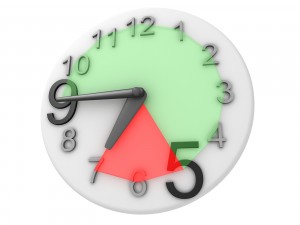
31 Aug Top 3 Emotional Intelligence Assessments
The Top 3 Emotional Intelligence Assessments for Employees
Technical skills and expertise are not enough to guarantee success. Emotional intelligence (EI) has emerged as a critical factor in not only individual performance but also in team dynamics. Companies are increasingly recognizing the importance of emotional intelligence in the workplace, and many are implementing emotional intelligence assessments as part of their hiring and employee development processes.
Emotional intelligence refers to the ability to understand and manage one’s own emotions, as well as the emotions of others. It involves skills like self-awareness, self-regulation, motivation, empathy, and social skills. These skills are vital for effective communication, leadership, and decision-making.
Here are the top three emotional intelligence assessments that are widely used for evaluating EI in employees:
1. Emotional Intelligence Appraisal – Travis Bradberry and Jean Greaves.
Developed by Travis Bradberry and Jean Greaves, the Emotional Intelligence Appraisal is one of the most popular EI assessments available today. The test measures four key emotional intelligence skills:
- Self-Awareness: Understanding one’s own emotions and their impact.
- Self-Management: Ability to control impulsive feelings and behaviors.
- Social Awareness: Understanding and picking up on emotional cues from others.
- Relationship Management: Ability to develop and maintain good relationships, communicate clearly, and influence others.
The Emotional Intelligence Appraisal is easy to administer and can be completed in as little as 10 minutes. It provides a detailed report that includes an overall EI score, scores for each of the four skills, and personalized strategies for improving emotional intelligence.
2. Mayer-Salovey-Caruso Emotional Intelligence Test (MSCEIT).
Created by Peter Salovey and John D. Mayer, who are credited with developing the concept of emotional intelligence, the MSCEIT is a performance-based test that measures the four branches of the EI model:
- Identifying Emotions
- Using Emotions
- Understanding Emotions
- Managing Emotions
Unlike self-report tests, the MSCEIT asks participants to solve emotional problems, rather than asking them to rate their own emotional skills. This provides a more objective measure of emotional intelligence. The test is more comprehensive and takes about 30-45 minutes to complete.
3. EQ-i 2.0 emotional intelligence assessments.
The EQ-i 2.0 is an updated version of the original Emotional Quotient Inventory developed by Reuven Bar-On. It is a self-report test that measures five key emotional intelligence competencies:
- Self-Perception
- Self-Expression
- Interpersonal
- Decision Making
- Stress Management
Each of these competencies is further broken down into subcategories, providing a detailed analysis of an individual’s emotional intelligence. The EQ-i 2.0 is widely used in corporate settings for leadership development, team-building, and employee selection.
Conclusion
Emotional intelligence is a crucial skill set that impacts various aspects of work life, from teamwork and communication to leadership and decision-making. The Emotional Intelligence Appraisal, MSCEIT, and EQ-i 2.0 are three top assessments that offer different approaches to measuring and understanding emotional intelligence. By incorporating these assessments into their HR practices, companies can not only make better hiring decisions but also develop more emotionally intelligent teams that are equipped to navigate the complexities of the modern workplace.
Also Read: 20 Questions on emotional assessments answered by the experts.




